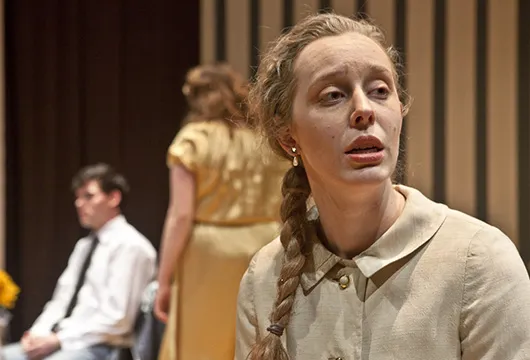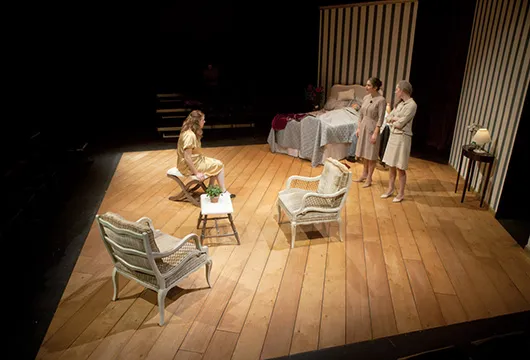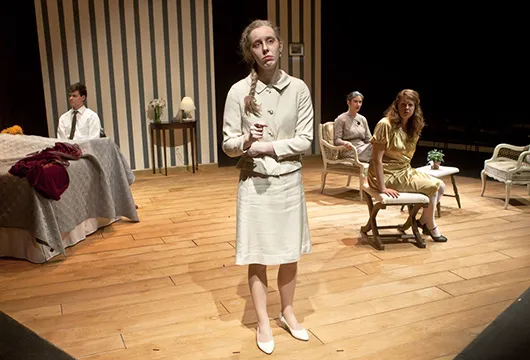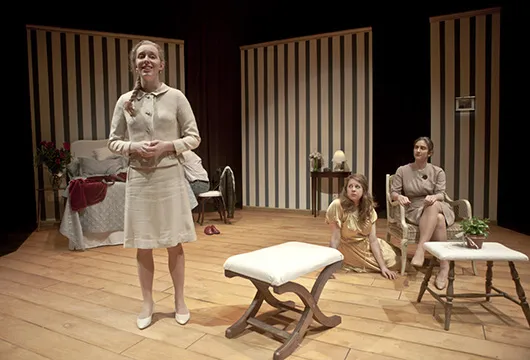THREE TALL WOMEN
Honors Acting Thesis
If you could look at your life... -thoughts on Three Tall Women by Director, Sarah Sanford '99
Imagine you exist next to yourself - "beside yourself," as it were. You observe qualities of your "self" and you admire or abhor them - but they are you and you cannot dispossess yourself of them. You spend a great deal of time thinking about growing old. You wonder what you will look like, feel like, at what age you will retire, if you'll have family or friends around you, if you'll be happy and loved or sad and alone. You wonder what will go first - your body or your mind, and you wonder which scenario would be preferable. You take out IRAs, get married and have children, you buy houses, cultivate hobbies. And before you know it, you're celebrating your 30th birthday, your 40th, 50th, 60th...You change. You put time into planning and saving but then life takes you down its thorny path, and you change. You fight the change, but acceptance comes every now and then because you have no choice. And with that acceptance another, deeper kind of change begins to creep into your consciousness - the knowledge that there's no going back. Years go by and you find yourself looking back a lot more than you're looking forward. The weight of your past has made you physically smaller. You've become a burden on other people and on yourself. You've changed, and you've forgotten how it happened.
How do you go on living?
****
Three Tall Women is written from the perspective of a dying woman. The play centers on a character closely based on Albee's adoptive mother, with whom he had a contentious relationship. In writing Three Tall Women, the playwright avows he was not "coming to terms" with his feelings for his mother but attempting to construct a character "who resembled in every way, in every event, someone I had known very, very well."
Aging, dying, and death are recurring themes in much of Edward Albee's work and feature strongly in Three Tall Women. Albee was greatly influenced by Elizabeth Kubler-Ross' 1969 book On Death and Dying, which examines the grieving processes experienced by the dying person and the bereaved, and he went on to write several plays that tackled death from both of these perspectives.
In his introduction to Three Tall Women Albee says, "Very few people who met my adoptive mother in the last twenty years of her life could abide her, while many people who have seen my play find her fascinating. Heavens, what have I done?!" It's conceivable that what Albee has done, consciously or not, is to have immortalized his mother by imagining his way into her head and onto the stage.
Performances: Feb. 25th and 26th at 8pm, Feb. 26th and 27th at 2pm (2011).
Honors Acting Majors Eva Amesse ('11), Nell Bang-Jensen ('11), and Isa St. Clair ('11), portray the three tall women of Albee's masterpiece, playing against type by embracing a rigorously physical approach to character. They are joined by cast member Brian Ratcliffe ('11), in the role of the Son. Directed by Sarah Sanford '99.








